COMMENT | More than two decades after my disqualification from the 1995 general election nominations, cybertroopers continue to pepper my occasional critical articles with reference to that episode, vainly trying to cast aspersions on my integrity: “Is it possible that someone with a PhD does not know how to fill a form?”
As with the other episodes in my life, I have chronicled that episode in my 1996 book titled “Inside the DAP, 1990-95” but for the benefit of the new generation and for those who are not clear as to what really transpired, that sorry episode has to be retold.
Sabotage, sabotage, sabotage!
The gist of it was, I was sabotaged not once but three times, and I was first sabotaged not by the BN but by one of the DAP’s hatchetmen.
For that, I am truly sorry to the voters of Petaling Jaya Utara for that “indiscretion” - I was not wary enough of the saboteurs within the DAP.
I should have been more cautious of the possibility of this internal sabotage for, as I wrote in my 1996 book, our disagreement with then DAP secretary-general Lim Kit Siang (photo) and his son over various crucial issues – pulling out of Gagasan Rakyat, party reform, democratising the method of candidates’ selection, the election theme for the 1995 general election and other issues – was making us a thorn in the flesh of the DAP leadership by the time the 1995 general election arrived.
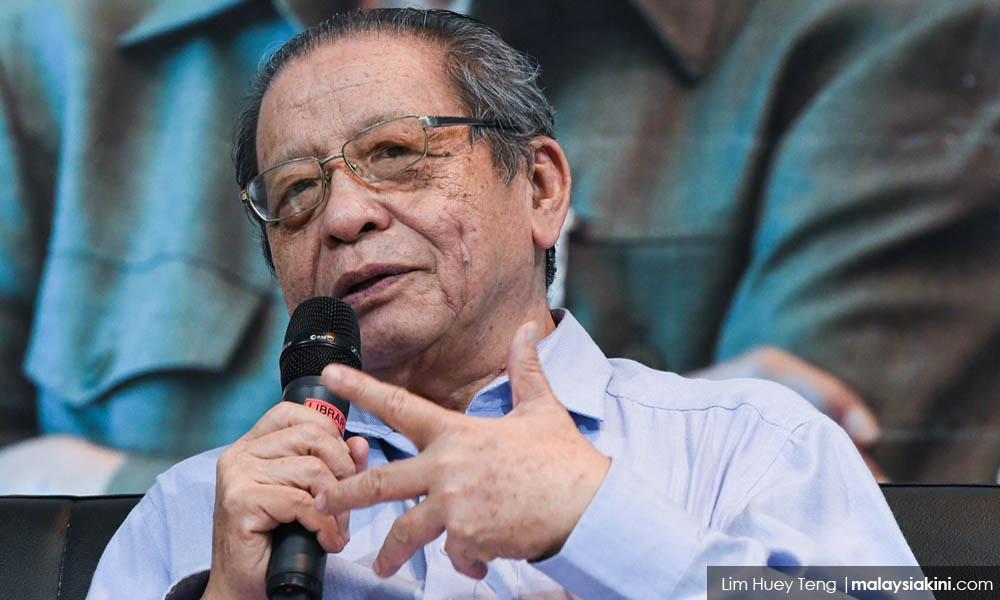
1. Sabotaged by a DAP hatchetman
During the build-up to nomination day of the 1995 general elections, I was busy copywriting the biodata for various DAP candidates to give them a more presentable image (at least on paper) in the eyes of the voters.
On the eve of nominations, I actually cleared my desk that morning to concentrate fully on filling in the nomination forms. Nothing untoward happened and the proposer, seconder and witness were available and I had completed the forms properly by noon.
However, close to midnight word got around that the numbers on the computerised electoral roll we had used were too long, they included the locality number and we were advised to follow the number on the printed electoral roll instead.
So I had to discard the already filled-in forms and began to fill in three new forms. This meant that a new proposer, seconder and witness had to be found.
My proposer and seconder filled in the three forms accordingly but I did not expect that my witness and campaign manager, Richard Yap – a staunch DAP supporter who had been hanging around the DAP headquarters for years – would do a dirty on me. He signed two of the forms but unsuspectingly, left out the third form.
Choong Quek Thiam, the party’s overseer of nomination forms for more than twenty years came over from the party headquarters, which was just a hundred metres away, specially to check through my forms because my wife Anne had rung him at the headquarters to ask him specifically to do this since she had received numerous calls regarding the electoral numbers.
The forms passed through Choong’s scrutiny and I thought that everything was fine. We only needed the proposer’s signatures and she promised to be there the following morning.
On nomination day, April 14, 1995, my proposer dutifully turned up and signed the forms and I was relieved.
However, for some inexplicable reason, my witness Richard Yap who would normally never miss out on the nomination day excitement was missing! For goodness’ sake, he was my campaign manager as well!
2. Sabotaged by a BN-appointed returning officer
The returning officer was president of the Petaling Jaya Municipal Council (MPPJ), Mohd Nor Bador, a BN appointee with whom I had frequent clashes in my capacity as the PJ Member of Parliament.
This was clearly a violation of the principle of “free and fair elections”, since the returning officer has to be independent.
He accepted my forms without comment. Then, while waiting for the period of complaints to pass, my election agent came in to inform me that Richard Yap had neglected to sign the third form that was being exhibited outside.
The returning officer, whose job it was to see that the forms were in order, had made it his business to point out Richard Yap’s missing signature to the BN supporters at the gate. And through all the altercation, Richard Yap was nowhere to be found to sign the third form.
As a matter of fact, on that nomination day in 1990 throughout the country, there were other cases similar to mine such as that of Chong Joon Kin who was standing in Kampar. In his case, the returning officer simply told him to rectify the mistake and accepted his forms.
Again, in the 2008 general election, incumbent Kuala Kangsar MP Rafidah Aziz left one of her forms unsigned during nomination. Nevertheless, Kuala Kangsar returning officer Mohd Ghazali Jalal allowed her nomination without fuss.
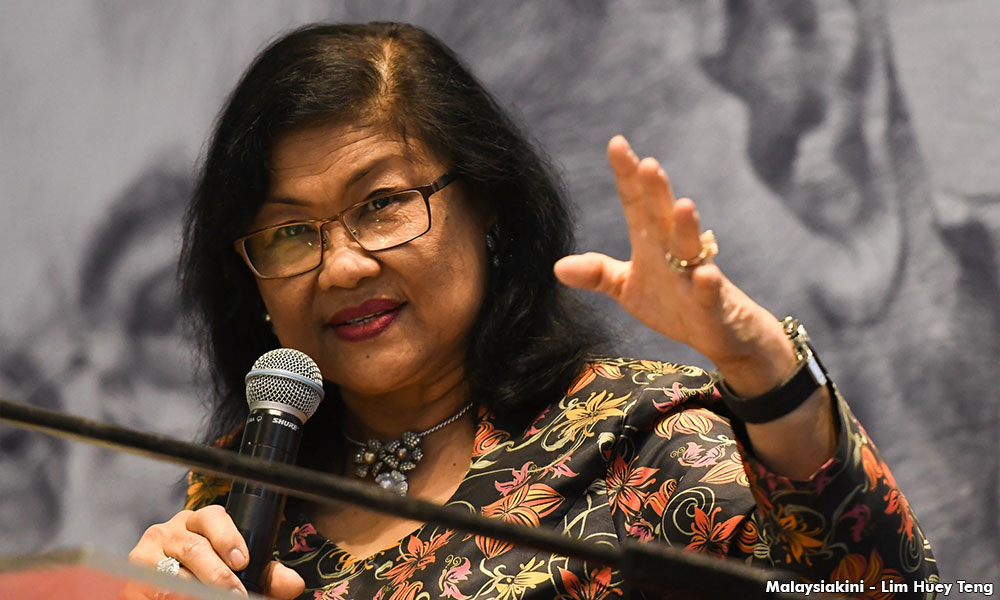
The returning officer called me up after the bantahan (challenges) period had lapsed to inform me that he was disqualifying me as a candidate. I protested vehemently but he would not have it any other way.
At that very moment, I felt the full impact of BN dishonesty since the Elections (Conduct of Elections) Regulations 1981 clearly stipulate that such omissions are of no material significance:
“4.(6) Failure to comply with paragraph (3), (4) or (5) shall render the nomination paper liable to be rejected by the returning officer:
Provided that no nomination paper shall be rejected on account of –
(i) Any error or omission in the nomination paper in relation to the description of, or any particulars in respect of, the candidate, or his proposer, or his seconder, if the particulars contained in the nomination paper are sufficient to identify the candidate, or his proposer, or his seconder, as the case may be;
(ii) Any error or omission with regard to any place specified in the nomination paper, if such place is otherwise sufficiently identifiable from the particulars given in the nomination paper; or
(iii) Any error or omission which is capable of being corrected and is corrected upon being brought to the attention of the person presenting the nomination paper;
Provided further that the returning officer may direct that any clerical or printing error in the entries in the nomination paper be overlooked if the error is not of any material significance and does not affect the identification of the candidate, his proposer, or his seconder, or the identification of the constituency in respect of which the nomination paper is delivered…”
Note that the witness to the signature of the form is not even mentioned in the above regulation but only the proposer and seconder, who also accompany the candidate into the nomination centre. The witness does not need to be present at the nomination centre at all.
3. Backed by concerned lawyers
On 21 April 1995, a group of concerned lawyers released a statement “out of concern over the inconsistencies and questionable decisions, on technical grounds, made during the general election nomination process resulting in the disqualification of incumbent MP for Petaling Jaya, Dr Kua Kia Soong on the grounds that the witness’ signature was omitted from one of the copies of his nomination paper.”
The signatories included R Sivarasa, Chew Swee Yoke, Leonard Foo, Yang Pei Keng, KS Lee, Ser Choong Ing, Francis Cheong, Koh Chwee Hoe, and Allan Wong.
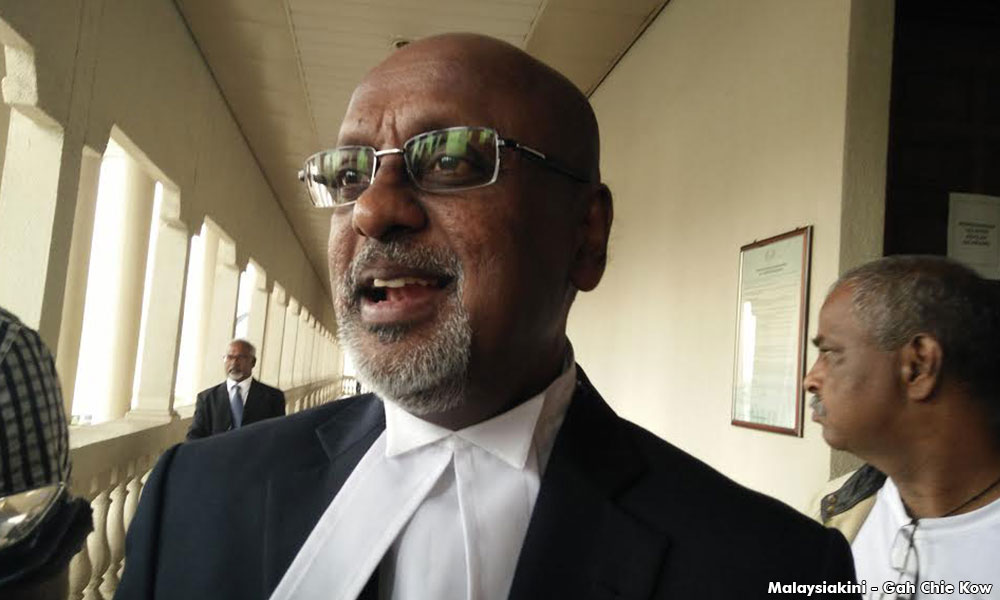
They announced that highly respected counsel Raja Aziz Addruse had agreed to be my legal counsel and this group of lawyers also volunteered to assist him in challenging the decision in court. They further stressed that:
(i) My nomination was complete – The Regulations, Section 4.(1) refer to the nomination paper which is submitted in triplicate.
In my case, the nomination paper and the second copy were complete, it was the third copy which contained the omission of the witness’ signature.
It must be noted that the law stipulates “triplicates”, referring to “carbon copies”, in which case the practice of “photocopies” would not apply!
(ii) Omission is not a basis for disqualification – “Omission” on only one copy of the nomination paper, when the original and the second copy are complete, cannot be construed as “intending to mislead”. After all, all the relevant information is available in the first two papers.
Therefore, omission is not a basis for disqualification as the courts found in the parallel case of Abdul Karim v Mohamed Taib & Anor (1960).
But even in the case of an error or omission on the original nomination paper itself, a remedy is provided in Regulation 4.(6) (iii): “No nomination paper shall be rejected on account of any error or omission which is capable of being corrected and is corrected upon being brought to the attention of the person presenting the nomination paper.”
They cited the case of Khoo Kay Por v Ooi Kwong & Anor (1980) when the candidate had written his signature in the place where he should have written his name, for which he was disqualified. The court ruled that such an error was not calculated to mislead and therefore his nomination was valid.
(iii) Negligence of the returning officer – The lawyers further pointed out that after my nomination forms had been submitted, it became the responsibility of the returning officer (RO) to ensure that they were in order.
The omission on the third copy of the form was “capable of being corrected”, yet the RO did not “bring this to the attention of the candidate”. Consequently, the RO failed to allow the omission to be corrected.
Thus the serious question arises as to why the RO failed in his duty to have the omission corrected. There were many cases of returning officers discharging their duty responsibly.
All over the country, both small omissions and more serious mistakes in form completion were pointed out by them and duly corrected.
In many instances, the ROs went out of their way to assist the candidate with their forms, for example allowing extra numbers to be deleted and the spelling of names to be altered.
This illustrates the point that the role of the RO is essentially to ensure the smooth running of the nomination process and not to disqualify political opponents unfairly.
The group of concerned lawyers referred to the Elections Act 1958 Part II.5(1)(a) which says that election officers should display “fairness, impartiality and compliance with Part VIII of the Federal Constitution” in carrying out their duties.
This rests on the Federal Constitution Part VIII 114.(2) which stresses the importance of securing an Election Commission which enjoys public confidence.
They found the decision by the returning officer in my case to be not only harsh, but it was also wrong in law:
“We further support the view that the candidate has every right to be allowed to offer his or her services to the people, a right which should not be determined by judgements on minor technicalities.
"We believe that this right should only be infringed in circumstances which could seriously affect the candidate’s ability to serve, such as being of unsound mind, having a criminal record or being a bankrupt."
In fact, the Bar Council had raised another important principle of the enfranchisement of the citizens of Malaysia. Under the Federal Constitution Part VIII 119.(1), the right to vote is seen as a fundamental element in the democratic process.
Thus, my disqualification as a candidate in the 1990 general election denied me the opportunity to represent the voters of Petaling Jaya Utara but also the voters of that constituency the opportunity to choose their candidate.
As my election petition approached, there was another precedent in August 1995 when Judge Azmel Maamor decided at the Kota Bharu High Court that the rejection of the nomination paper was not mandatory. This would have guaranteed the success of my petition.
Foiled again by Shah Alam High Court judge
Thus, I felt I had a pretty good case when I filed my election petition against my disqualification as a candidate for the Petaling Jaya Utara parliamentary constituency in the 1995 general elections and it was heard at the Shah Alam High Court (photo) before Judge Abdul Hamid Mohamed on June 27, 1995.
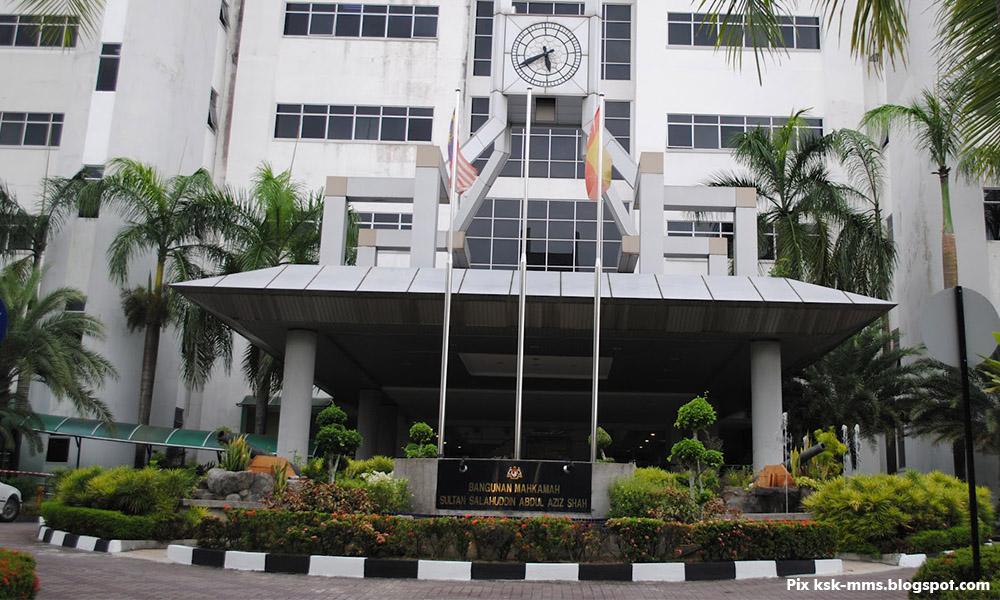
I felt confident of winning the case since perhaps the best lawyer in the land, Raja Aziz Addruse had undertaken to argue my case on a pro bono basis.
Unfortunately, before we could go into the merits of my case, the counsel for the respondent sprung a “preliminary objection” regarding the translation of my petition. My counsel Raja Aziz stood up to put forward his arguments why this “preliminary objection” should not be allowed.
First and foremost, the counsel for the respondent had failed to first put in a formal application or notice of motion. This “preliminary objection” had been raised at the eleventh hour without notice. It was completely unethical and deprived my counsel of the opportunity to prepare a counter argument and quote authorities. This is an elementary procedural point and should have been followed.
The judge completely ignored this fundamental objection raised by Raja Aziz and decided to uphold this small technical point raised by the respondent’s counsel. The case was over before noon!
The next day, theSun newspaper reported the case of my election petition under the banner headline: “FOILED AGAIN!”. Judge Abdul Hamid Mohamed took objection to this banner headline and he wrote a letter of protest to The Sun on 7 September 1995, defending his Sept 4 judgement and attempted to explain “what happened that day”.
I replied with a letter to the same newspaper on Sept 9, 1995 stating that it was no business of the judge to protest against theSun’s choice of banner headline: “FOILED AGAIN!”.
I said there was nothing factually wrong with the headline. My attempt at being a candidate in the April 25, 1995 general election had been foiled by a BN-appointed returning officer over a trivial technical matter.
I further pointed out that in his letter, the judge had failed once again to mention my counsel Raja Aziz’ objection to the respondent’s counsel’s “preliminary objection”, the procedural point which was not followed by the judge. This was a fatal omission in the judge’s clarification! I ended my letter thus:
“theSun’s report of the case correctly highlighted the astonishing fact that a principle of such great consequence to the system of parliamentary democracy in this country should be trivialized into nit-picking over small technical points of procedure.”
The quantum of indiscretion
Alas, I did not expect to be sabotaged by a DAP hatchetman! And ever since my departure from the DAP, the party leaders and their “red bean army” have seized any opportunity they can to cast aspersions on my integrity regarding my disqualification from the nominations in the 1995 general election.
The DAP leaders continue to pretend not to know the truth of my disqualification even though throughout the election campaign, it was made clear to the public that it was my witness, who happened to be a DAP veteran, Richard Yap who had neglected to sign the third nomination form. He has still not explained his disappearance from the nomination centre when he was the witness for my nomination forms.
Did Richard Yap act alone or was he coaxed by interested parties? And who might these parties be? Was he offered any incentives by the MCA or was he trying to ingratiate himself to the top DAP leadership?
The latter cannot be ruled out since as I have said, by 1995 I had become quite a thorn in the side of the DAP top leadership. As it turned out, after years of trying, Richard Yap was finally rewarded when he was selected to be a candidate in Ampang Jaya during the 2004 general election.
The point to note is that when I was disqualified on nomination day, then DAP secretary-general Lim Kit Siang wanted me to concede and apologise for “…your indiscretion”.
At the time, I wondered what his reaction would have been if it had been his son who was disqualified. He would probably have cried blue murder and called for a nationwide campaign and for action to be taken against the returning officer.
Comparing then and now
Well, that is all history although we have the opportunity now to compare “the quantum of indiscretion” over the affairs of the former secretary-general’s son and present chief minister of Penang.
On 3 July 2016, Penang Chief Minister and DAP secretary-general Lim Guan Eng (photo) was slapped with two charges of corruption. Also charged was businesswoman Phang Li Koon, who is accused of abetting Lim to commit the alleged offences.
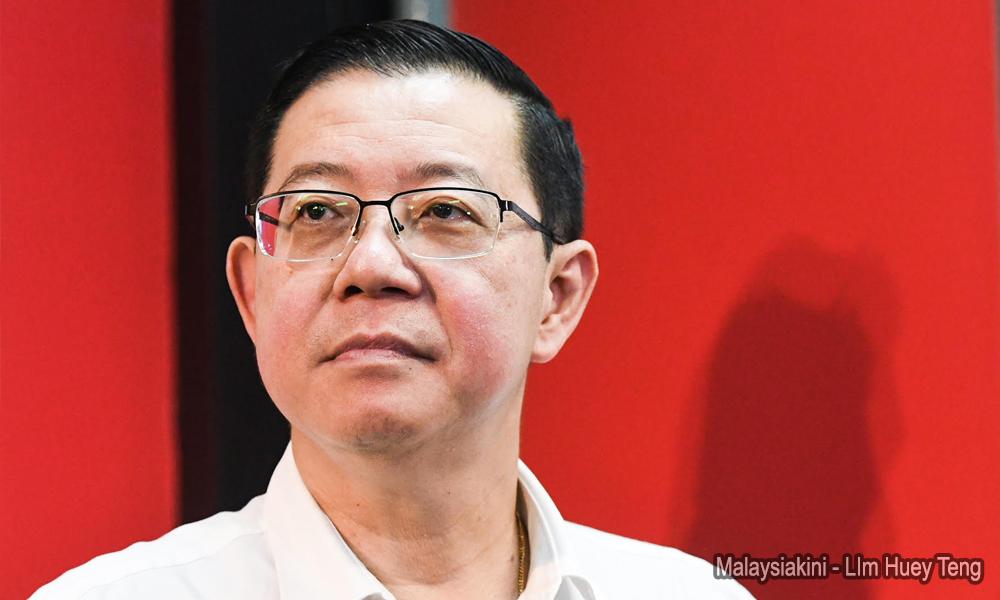
Lim’s first charge is under Section 23 of the MACC Act 2009 (MACC Act), which criminalises the use of a public office for personal gratification.
Lim was accused of having committed this offence on July 18, 2014, at a Penang State Planning Committee meeting by approving the rezoning of a land from agricultural to housing in favour of Magnificent Emblem Sdn Bhd. This is purported to have benefited him and his wife, Betty Chew. The said land is located at Lot 436 and 437, Mukim J, Daerah Barat Daya, Penang.
Lim’s second charge is under Section 165 of the Penal Code, which bans public servants from accepting valuables from someone whom the public servant knows is likely to be linked to a public business that he is engaging in.
In Lim’s case, he is accused of knowingly buying a bungalow on Pinhorn Road, Penang, at below market price. Lim and Chew now reside in the bungalow.
According to the charges, Lim purchased the house from Phang on July 28, 2015, which is over a year after the land conversion was approved.
The 10,161.13 square-foot property was supposedly worth RM4.27 million at the time, but was transacted at only RM2.8 million – an alleged difference of RM1.47 million.
So, when we compare my supposed “indiscretion” in 1995 with Lim Kit Siang’s son, the Penang chief minister’s indiscretion over the purchase of his house at a vastly discounted price from a developer leading to his corruption charges - how do we compare the quantum of indiscretion?
KUA KIA SOONG is Suara Rakyat Malaysia (Suaram) adviser.
The views expressed here are those of the author/contributor and do not necessarily represent the views of Malaysiakini.

